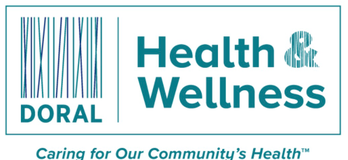Breaking Chains: Liberation and Recovery in Trauma Therapy
Can I heal from a traumatic experience? Many people ask that question to themselves/online/to anyone they trust. The answer is yes. However, it takes time and hard work which makes it a slow process. Recovery from trauma doesn’t mean that you become completely free from post-traumatic effects.
But you learn how to accept that trauma as a past event of life and live in the present without being overwhelmed by thoughts and feelings of the past. Learn what stages you may go through in trauma recovery and tips that help you recover from trauma yourself in this article. Visit the best Mental Health Clinic in Brooklyn at Doral Health & Wellness or log on to www.doralhw.org.
Stages of trauma recovery
The primary goal for patients who experienced trauma is to heal by using trauma therapy. Recovery doesn’t mean you achieve complete freedom from post-traumatic effects, instead, you start focusing on your present and accepting your thoughts and feelings of the past without being overwhelmed by them.
Remember, no one’s recovery process is similar because each person’s ability to process their individual experiences is different. So, don’t compare these stages with your healing process and think that you’re doing something wrong. Follow the guided principles in your recovery journey and see the difference in your thoughts and emotional patterns.
For trauma recovery, a 3-phase trauma framework is designed for patients to manage their trauma, including:
- First stage – safety, and stabilization
- Second stage – remembrance and mourning
- Third stage – reconnection
- Safety and stabilization:
In this stage, the main goal is to create a sense of safety and trust (that gets disrupted due to traumatic incidents). A good relationship with the therapist is a key highlight of this stage. It helps to regain a sense of safety that takes days to weeks with acutely traumatized patients and months and years with patients who experienced chronic abuse.
To achieve this sense of safety and stabilization, the therapist uses different approaches within the “Window of Tolerance.” It’s a concept in psychology that means a range of negative emotions and arousal levels you can tolerate and regulate effectively.
The ‘window’ represents the optimal emotional and physiological arousal level for you to function effectively while maintaining psychological stability. If the arousal levels fall outside the window, then you may experience distress, anxiety, or traumatic reactions or become dissociative or shut down.
This concept can vary from person to person and can be affected by trauma, stress, and other factors.
- Remembrance and mourning:
In this stage, you share your story of trauma with the therapist, putting your words and feelings in the memory and giving meaning to it. The goal here is to start your healing from the trauma and reconstruct negative beliefs about the world, yourself, and relationships. Usually, this process is taken under a counselor or therapist in group or individual therapy.
This will allow the person to safely move through this phase and integrate the story of the trauma rather than reacting in a fight, flight, or freeze response. It also lowers your time in this phase and improves pacing which is crucial in this stage.
In case the person affected by trauma becomes quickly overwhelmed and emotionally flooded when talking about their painful recollection of trauma memories, provide them safety and stability to regain control before further moving on in the story.
This stage involves essential exploring and mourning losses associated with the trauma which provide space to grieve and express their emotions.
- Reconnection and integration:
In this stage, the therapist focuses on reintegrating you into your everyday life and relationships with a new sense of self and control. With the process, trauma no longer is the defining principle of your life and it’s not your life story instead it’s just a part of their story.
Now, the person is ready to take concrete steps towards empowerment, self-determined living, and self-care. You develop new beliefs and life-affirming connections instead of the old ideas that are created by the traumatic incident. In some cases, people go on the mission of continuing healing and growth like talking to youth or peer mentoring.
This process of creating a successful resolution gives a sense of meaning and purpose in life that resilient their human spirit.
If trauma is ruining your life, then visit our behavioral health clinic in Brooklyn to get professional medical help where all your concerns will be listened to and treated. All your concerns will be addressed here. For further inquiries, call us on +1-347-384-5690 to get a consultation. We have some of the finest psychiatrist doctors who listen to your concerns, examine your symptoms, and create a treatment plan to improve your condition as soon as possible. If you need help learning coping methods, register your information and make direct contact with our doctors and psychiatrists to learn those methods, log on to www.doralw.org. Visit us at 1797 Pitkin Avenue, Brooklyn, NY 11212.



